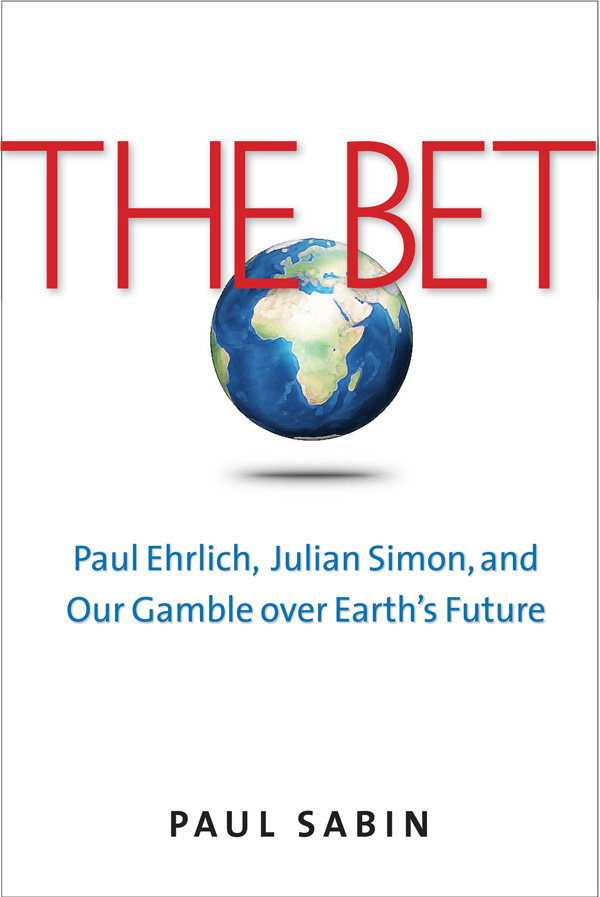The Bet
Paul Ehrlich, Julian Simon, and Our Gamble over Earth's Future
Today’s raging partisan battles over climate policy and the Keystone XL pipeline are just the latest examples of a deeper debate about our future: Are we headed for a world of scarce resources and environmental catastrophe, or will market forces and technological innovation yield greater prosperity? In a gripping new history, Yale University professor Paul Sabin draws on an iconic story to examine the clash between environmentalists and their conservative critics—from the late 1960s to the present—and trace the origins of the political gulf that separates the two sides.
In 1980, the iconoclastic economist Julian Simon challenged celebrity biologist Paul Ehrlich to a bet. Their wager on the future prices of five metals captured the public’s imagination as a test of coming prosperity or doom. Ehrlich, author of the landmark book The Population Bomb, predicted that rising populations would cause overconsumption, resource scarcity, and famine—with apocalyptic consequences for humanity. Simon optimistically countered that human welfare would flourish thanks to flexible markets, technological change, and our collective ingenuity. The Bet weaves the two men’s lives and ideas together with the era’s partisan political clashes over the environment and the role of government.
In a lively narrative leading from the dawning environmentalism of the 1960s through the pivotal presidential contest between Jimmy Carter and Ronald Reagan and on into the 1990s, Paul Sabin shows how the fight between Ehrlich and Simon—between environmental fears and free-market confidence—helped create today’s gaping and rancorous political divide. Drawing insights from both sides, Sabin argues for using social values, rather than economic or biological absolutes, to guide society’s crucial choices relating to climate change, the planet’s health, and our own.
More about the book
- “The Bet”: Table of Contents
- Excerpt from “The Bet”
- NPR’s Planet Money, “A Bet On The Future Of Humanity”




